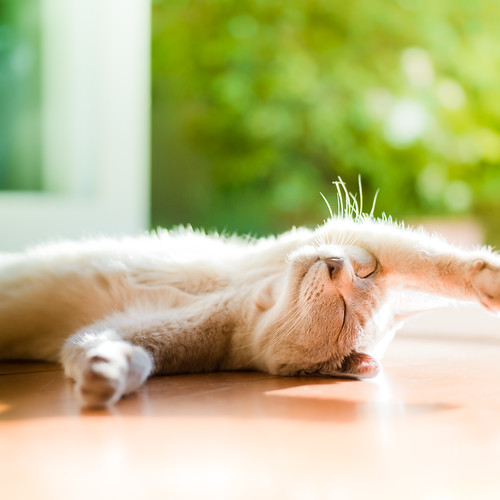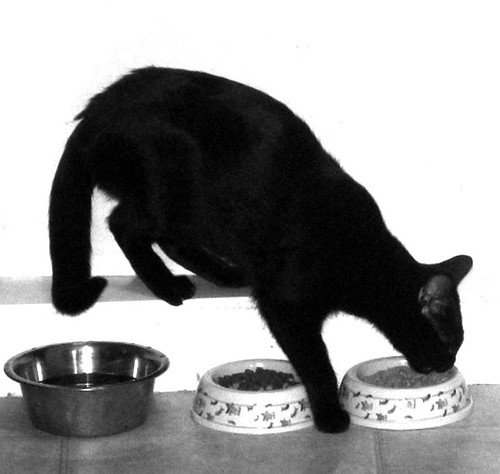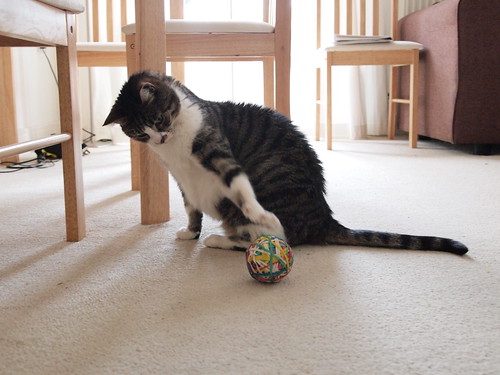 Feline inappropriate urination (house soiling) can be a very frustrating situation to deal with.
Hopefully the following will help you understand why your cat may be doing this, and will help
you resolve the issue.
Feline inappropriate urination (house soiling) can be a very frustrating situation to deal with.
Hopefully the following will help you understand why your cat may be doing this, and will help
you resolve the issue.There are three primary causes of inappropriate elimination in cats:
- Medical problems such as urinary tract infections, bladder stones, stress, or metabolic diseases such as diabetes or kidney disease.
- Litter box aversion.
- Territorial (spraying)
Medical problems
A cat that is urinating in the house should be examined by a veterinarian to rule out medical problems. Your veterinarian may run a urinalysis, blood work, and/or x- rays to do this. If no medical problem is detected, the inappropriate elimination may be assumed to be a behavioral problem.
Litter Box Aversion
This is due to dissatisfaction with the litter box, the litter, the cleanliness of the box, or the location of the box. It is usually characterized by urinating on horizontal surfaces in low traffic areas, such as the corner of the room, or the floor. Recommendations to help with this are:
1) Length of the litter box should be at least 2.5 times the length of the cat.
2) Use non hooded boxes and do not use litter liners.
3) Clean box daily and wash with soap and water at least once a week.
4) Have one box per cat in the home plus one additional, and place in different locations and even at the sights of inappropriate elimination.
5) Prevent access to the area where the elimination has been occurring when possible.
Spraying
Spraying usually occurs in multiple cat households for territorial reasons and is on vertical surfaces. It is a normal instinctual behavior in intact cats. It can also be a response to a change in the environment such as a new pet or baby, construction, or even a stray cat outside near windows or doors. Recommendations to prevent this are: spaying/neutering your cat, place items at the site of urination to dissuade your cat such as moth balls or aluminum foil, close curtains to prevent your cat from seeing outdoor cats. Feliway is a pheromone diffuser that can also be helpful in preventing spraying. Medications available from your veterinarian can also be helpful if other modifications have been unsuccessful.
Written by Dr. Suzanne Brough, DVM
Read more or contact Dr. Suzanne:
Suzanne Brough, DVM
Lap of Love Veterinary Hospice
Naples Florida
drsuzanne@lapoflove.com |drsuzanne@lapoflove.com www.lapoflove.com
Dr. Bansel services towns in and around Collier and Lee counties including: Naples, Estero, Bonita Springs, Ft Myers, and Port Charlotte.








